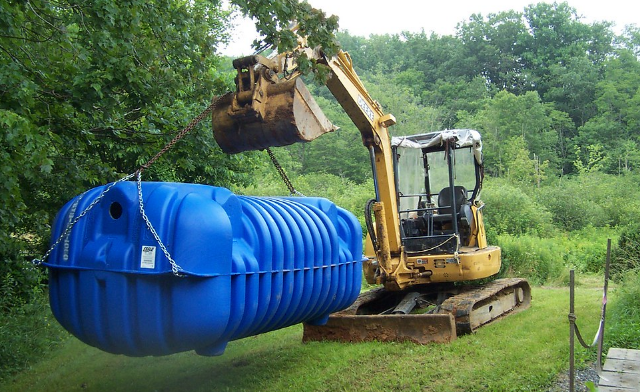 If you want to extend the life of your septic system, follow the guidelines below. They should be kept with your other essential papers and passed to new residents. Remember that it is much cheaper to maintain your septic system than replace it. You can also follow the guidelines for pumping your septic system and inspecting your drain field. Finally, follow these tips to keep your septic system running smoothly.
If you want to extend the life of your septic system, follow the guidelines below. They should be kept with your other essential papers and passed to new residents. Remember that it is much cheaper to maintain your septic system than replace it. You can also follow the guidelines for pumping your septic system and inspecting your drain field. Finally, follow these tips to keep your septic system running smoothly.
Conserving water
Everyone should try to conserve water, and conserving water when maintaining a septic tank and sludge removal system should be no exception. Using less water will prolong the septic tank’s life, keep solids in the sludge layer, and keep fats, oils, and grease in the scum layer. In addition, this will help achieve the primary treatment of wastewater in the septic tank Orlando.
To conserve water when maintaining a septic system, use less water in the house. One way is to space water use and install low-flow shower heads and aerators. Using low-flow shower heads and water-efficient faucets will help reduce water consumption. In addition, installing efficient toilets and showerheads is another water-saving option. Following these tips will save water and avoid a septic system backup.
Another way to conserve water in the septic system is to stop flushing wastewater while cleaning your teeth. You might also be inclined to leave the sink running while you brush your teeth. However, the constant water flow through the sink can overwhelm the septic system. This, in turn, can pollute groundwater near your home, which can be a source of drinking water. Thus, water conservation will ensure that you won’t have to replace your septic tank soon.
Inspecting septic tank
Regular septic tank inspections are essential to maintain the efficiency and effectiveness of the septic system. Usually, a system will fail in 10% to 20% of its lifetime due to poor maintenance and inappropriate design. If your septic system fails, the waste it collects can contaminate nearby water sources, posing a potential health risk to your family. Performing a septic tank inspection by a professional is an ideal way to prevent future failures. In addition to the septic tank’s physical structure, an inspection of the system will also focus on the inlet and outlet pipes, baffles, lids, chambers, and other structural details.
Keeping a record of septic tank inspections is a great way to ensure the system functions properly. During these inspections, a professional will record the results, including any leaks, scum levels, and other damage to your system. If you have noticed any problems with your system, you should have a septic expert repairman perform the required repairs. You can also keep detailed inspection reports as a guide to ensure your septic system is functioning correctly and that it is operating optimally.
Pumping septic system
Your septic tank should be pumped regularly to ensure that solids cannot accumulate in the tank and flow into the drain field. Pumping is also a good way to detect other problems with the tank and prevent them from worsening. In addition to helping your septic system maintain its health, pumping is also a good way to extend its lifespan.
Regular pumping can also prevent sludge from accumulating for many years without interfering with solids’ separation. Sludge solids near the transparent liquid layer are light and can be pushed out of the tank and into the soil absorption field. Over time, this can lead to premature failure. Therefore, it is vital to schedule pumping to avoid overflow and the potential for extensive damage to your septic system.
Inspecting drain field
Inspecting your drain field when maintaining your septic system is essential for the proper functioning of your septic system. Ensure there are no clogs or blockages, and ensure the filter is working correctly. Solids in the drain field can cause groundwater contamination. A septic tank inspector can inspect the filter to ensure it works properly and is replaced as needed. The inspector will also look at the water flow pattern for signs of leaks or back-ups.
A clogged septic system can cause untreated wastewater to spill into the drain field, causing flooding. It can also cause the sewer to back up into the house and even pollute the groundwater. Luckily, septic tank inspections are inexpensive and relatively easy. Many companies offer these services, so you may consider contacting them if you have any questions.






